Important Information
Programs
Courses
Residential Schools
International Students
Current Handbook
Glossary
By Course Code:
ACCT AINV ALLH AQUA ARTH ARTS AUDV AVAT BIOH BIOL BIOT BLAR BLCN BLOC BLSV BMED BMSC BOTN BUSN CHEM CHIR CNSL COIS COIT COMM COMT CQUN CREA CULT DGTL DNCE DRMA ECOM ECON EDCU EDEC EDED EDEL EDFE EDHE EDSE EDVT ENAC ENAE ENAG ENAM ENAR ENCO ENEA ENEC ENEE ENEG ENEM ENEP ENEV ENIM ENMG ENML ENMM ENPG ENPO ENRG ENSD ENSE ENTA ENTC ENTE ENTG ENTI ENTM ENTZ ENVH ENVR ESSC EVST FAHE FARM FILM FINC FSEH GENE GEOG GEOH GOVP HIST HLPB HLTH HLTP HMGT HMSC HRMT HUMT IEXC INDG JALC JAPN JAZZ JOUR LAWS LITR LNGC LNGE LOTE MARN MATH MBIO MDWF MEDI MEDS MGMT MMST MNTR MQPR MRKT MUSC NHLT NHPE NURS NUTR OCCT OCHS OLTC ORAL PERF PHRM PHYG PHYS PMSC PODI PPMP PROP PSIO PSYC RAIL RELG SAFE SCIE SKIL SOCL SOWK SPCH SREC STAT SWHS THTR TOUR VART WELF WRIT ZOOLSOCL11058 Science Technology and Society
Course details
In this course students will learn about the social relations that influence scientific knowledge and the power relations that validate scientific claims. On completion of the course students should have applied key sociological concepts to explain the influence of contemporary society on the development and use of science, such as the impacts of technology and the ethical arguments which underpin contemporary scientific debate. Assessment tasks will require students to write a short essay and create a poster to demonstrate the application of sociological knowledge to explain the changing relationships between science, society, and technology. Students will have the opportunity to learn about society┐s influence on decisions about genetically modified food, reproductive technologies, technology to combat climate change, and their social, economic and political impacts. Some of the debates analysed include animal rights, local/traditional knowledge as theory, the ownership of genetic material, the transfer of technology across cultures, and the gendered uptake and use of technologies.
Course at a glance
| Career: | Undergraduate |
| Credit points: | 6 |
| Requisites: | This course has no pre/co-requisites |
| Student Contribution Band: | 1 |
| EFTSL: | 0.12500 |
Course availability
| Term | Campus |
|---|---|
| 2013 Term Two | BDG FLEX ROK |
Course evaluation reports
Course evaluation results may be accessed using the Course Evaluation application in the My.CQU Portal at http://my.cqu.edu.au
PRINT WARNING - Printed copies of this document or part thereof should not be relied upon as a current reference document. ALWAYS refer to the electronic copy for the latest version.
